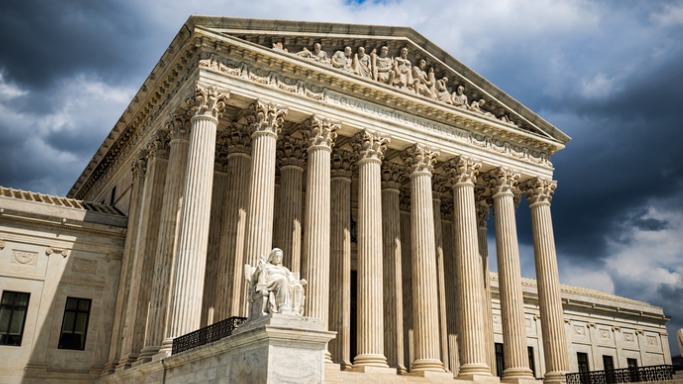No. 21-968
United States Supreme Court
On Petition For A Writ Of Certiorari
To The United States Court Of Appeals
For The Fourth Circuit
WASHINGTON, D.C. — Independent Women’s Law Center (IWLC) on Monday filed an amicus brief, asking the United States Supreme Court to take up the case of Fairfax Cty School Board v. Jane Doe and clarify the legal standard for holding school districts financially liable for student-on-student sexual harassment.
More than 20 years ago, the Court in Davis v. Monroe Cty held that a student who is harassed by another student may, in some circumstances, recover damages from her school district under Title IX of the Education Amendments of 1972. The Davis majority said, however, that liability would generally not attach to “a single instance of one-on-one peer harassment” without “a systemic effect on educational programs or activities.” It clearly envisioned its holding would apply only where the school district is responsible for the harassment or where the district’s response to sexual harassment complaints by students of one sex or the other is itlself discriminatory.
Unfortunately, in the twenty-plus years since Davis was decided, the basis for school district liability has been expanded beyond recognition, with some courts, including the Fourth Circuit, permitting students to sue their schools for failing to immediately punish an accused harasser for a single allegation of harassment.
In the Fairfax case, a student, known only as Doe, alleged that another student touched her private parts and placed her hand on his own private parts without consent on a school bus. The school investigated, but ultimately determined not to discipline the student. Doe filed a federal sexual harassment lawsuit, but the jury returned a verdict for the school district.
On appeal, the 4th Circuit overturned the jury’s determination that the district had not committed sexual harassment in violation of Title IX. The Fourth Circuit held that the student may hold the school district liable for monetary damages based on a single, isolated incident even though the school had no knowledge of the incident until after the fact, and even though the school district’s actions neither caused the harassment nor led to further harassment.
IWLC’s brief in support of certiorari argues that the Supreme Court should take up this case in order to clarify the scope of liability for student-on-student harassment.
Jennifer C. Braceras, director of Independent Women’s Law Center, issued the following statement: “The law of sexual harassment has been stretched beyond recognition. Title IX prohibits educational institutions from discriminating on the basis of sex. It is not supposed to turn every student disciplinary issue into a federal case.”
Erin Hawley, senior legal fellow at Independent Women’s Law Center, said: “This case is the perfect vehicle for clarifying Davis, resolving the conflict over its scope, and determining whether Title IX imposes liability in such circumstances .”
Read the brief HERE.
###
Independent Women’s Forum is dedicated to developing and advancing policies that aren’t just well intended, but actually enhance people’s freedom, choices, and opportunities.
Independent Women’s Law Center advocates for equal opportunity, individual liberty, and respect for the American constitutional order.

